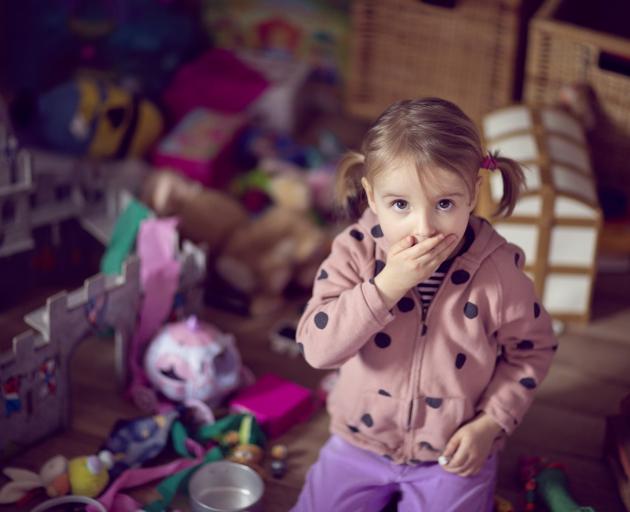

He'd obviously worked out that it would get him some attention as he looked quite pleased with himself.
Pre-schoolers busy learning the power of language, experiment with all sorts of words, real and invented and this little fellow had picked this particular utterance up from someone, liked the sound of it, and probably didn't understand what he was saying.
In these sorts of circumstances, the best reaction isn't to laugh or to think it's cute but to react as little as possible. One such response could be a simple statement such as, "that's not a word (or saying) we use in this house" and then, if needs be, offer an alternative.
As they get older and do understand what they're saying they'll continue to use the words to fit in with their peer group, to call attention to themselves, to shock others or to show resentment, particularly to authority. If youngsters find they're generating a sizeable emotional reaction in a parent or teacher, they quickly realise what a marvellous weapon they have. These negative responses reinforce the use of the language rather than limit it.
Some sources, such as the television, you can exercise control over and some you can't. In many cases, one of the first things to be done is to clean up parental language. And it isn't a case of only having to watch our language once junior begins to talk. He's taking it all in before he hits his first birthday.
It's once they start pre-school or school that the nature of the unacceptable language is likely to change and become more colourful.
The first unacceptable words used are likely to be related to bodily functions and are best dealt with by ignoring them. No reaction means there's no impact.
One child expert suggests a simple response such as, "my ears stop working when I hear silly words like that" and then turning away and ignoring the few more words that will undoubtedly follow to test this.
Or perhaps, "These are words I don't like to hear. If you need to use them, please go to your room and close the door, so I don't have to listen to them." For a child visiting, "We don't use that word in this house".
Try taking the power out of the word by repeating it matter-of-factly. "I'm sorry that hurt, but please don't say `...' when I'm around."
The less annoyed you get, the less effect the words will have and the less likely they'll be used to rile you.












